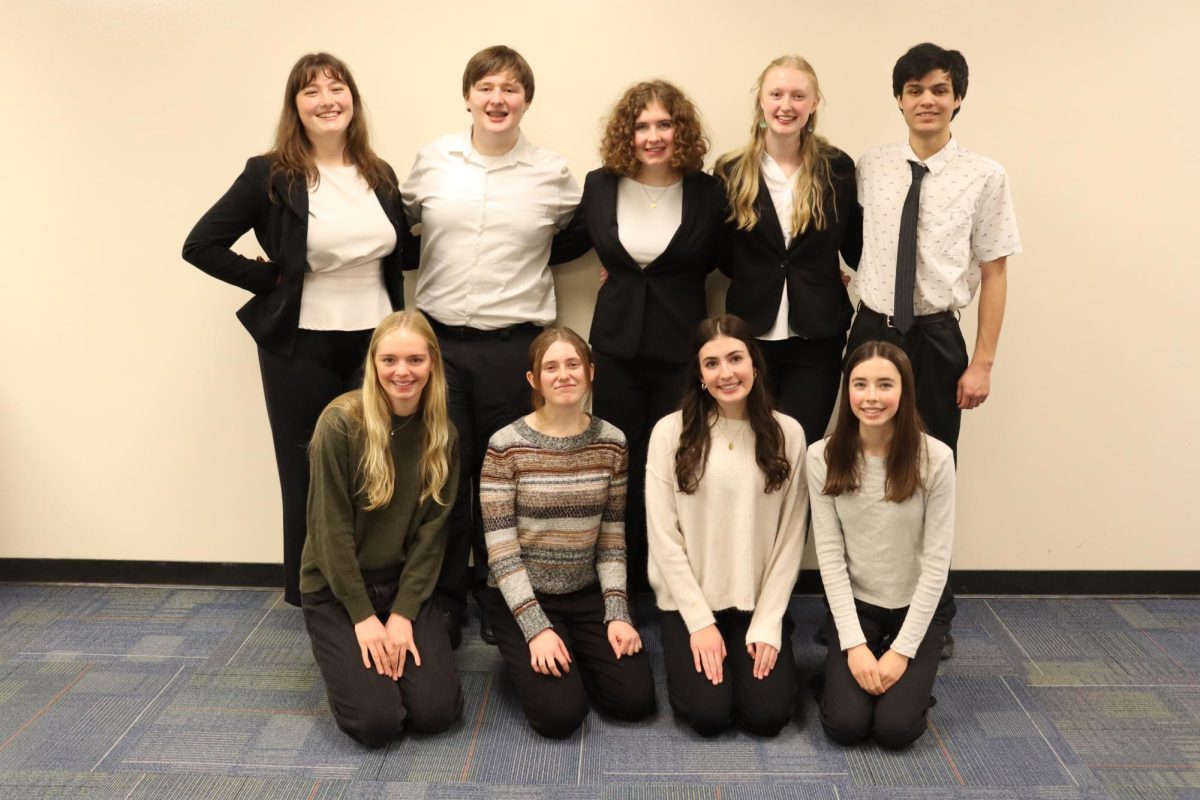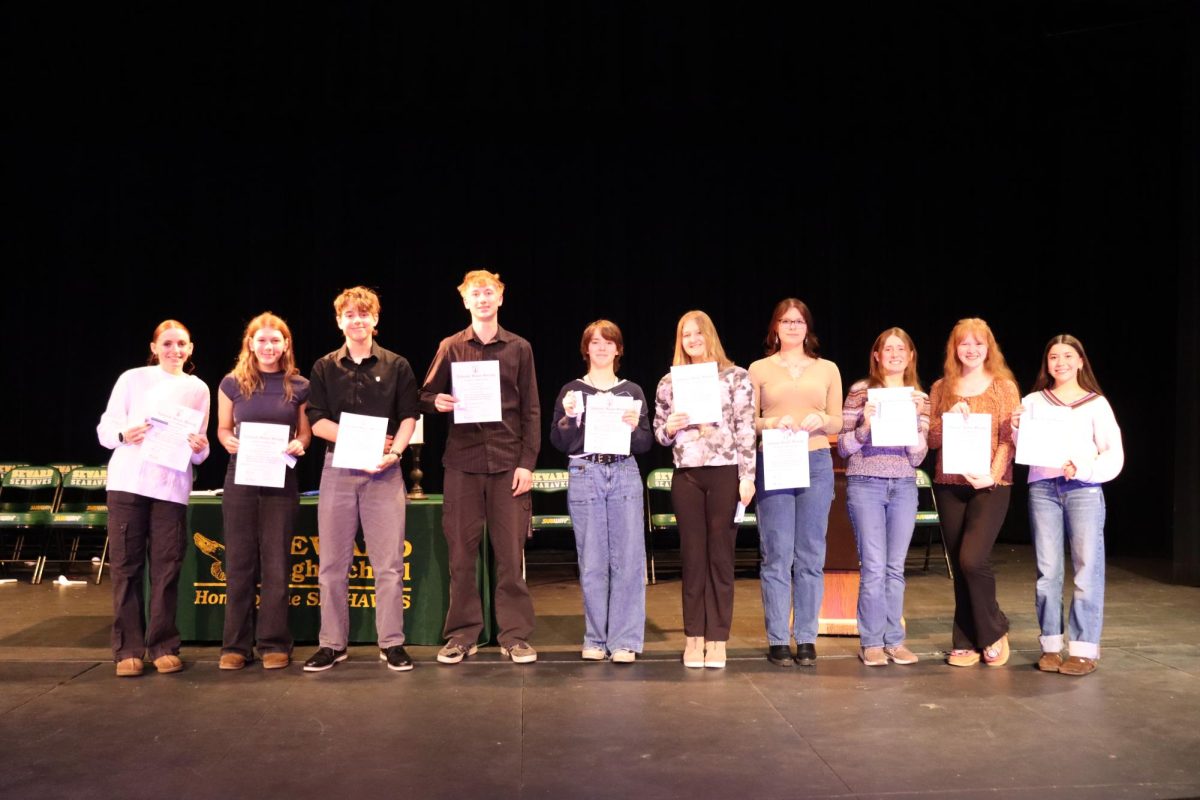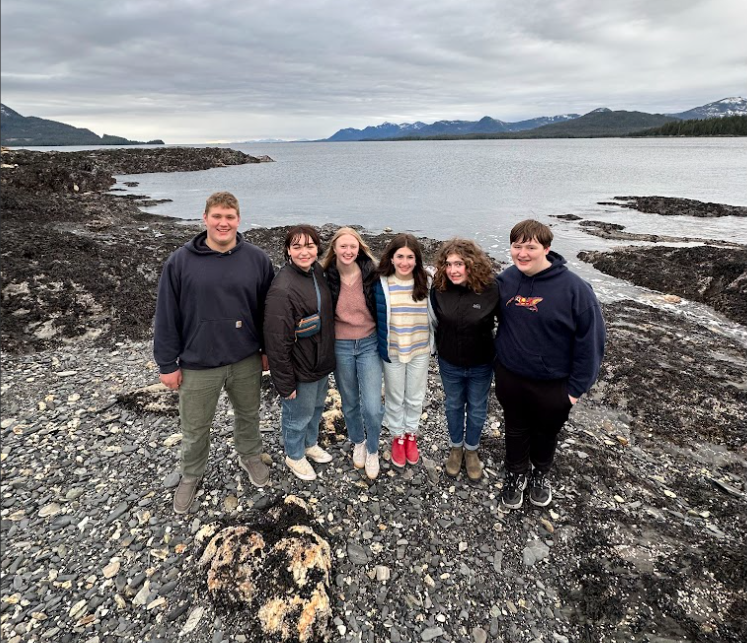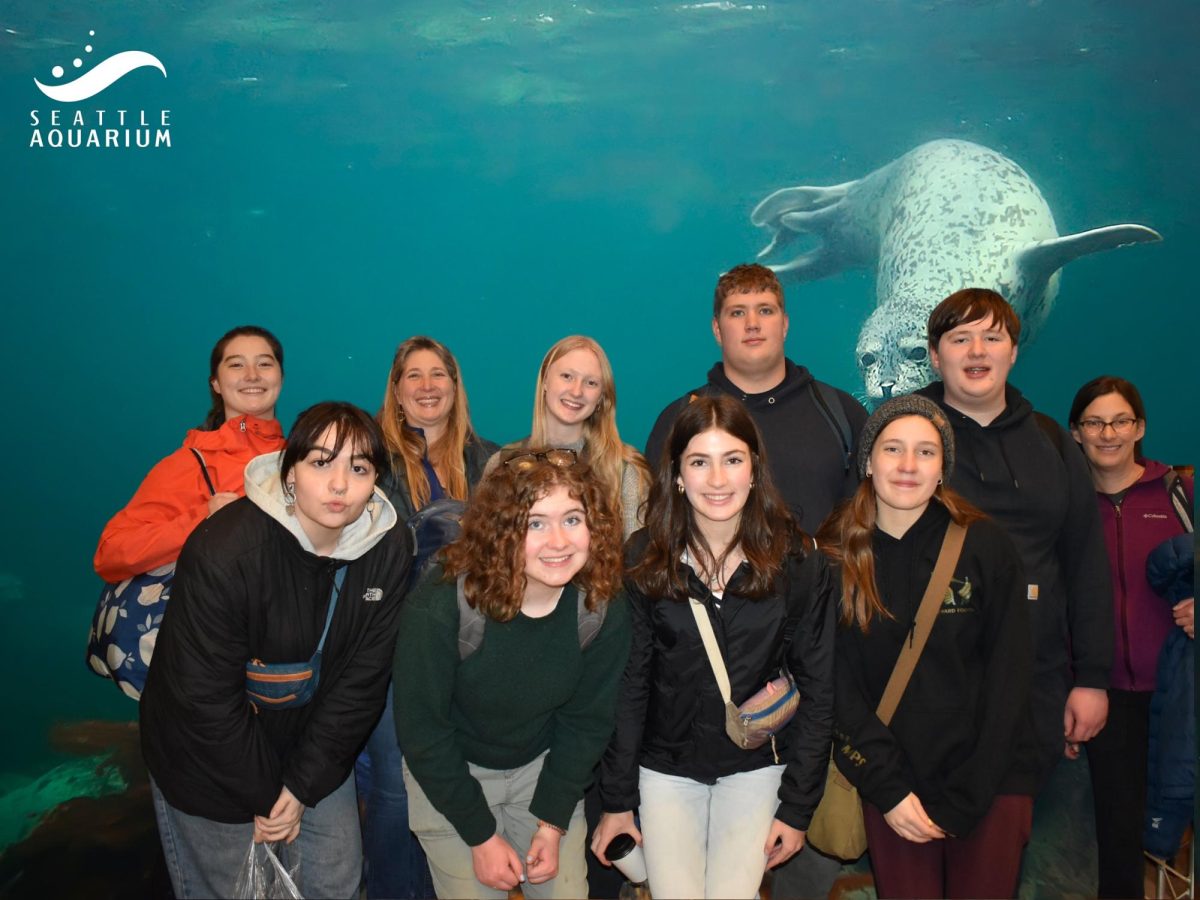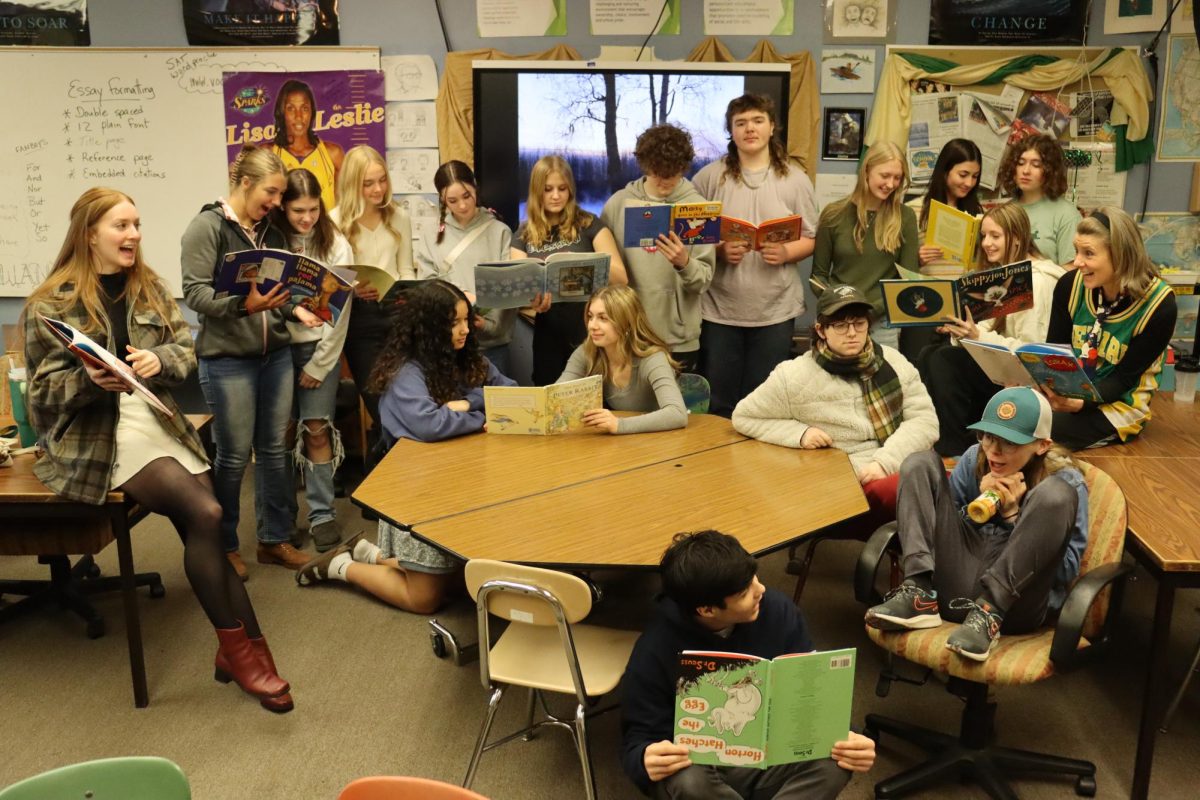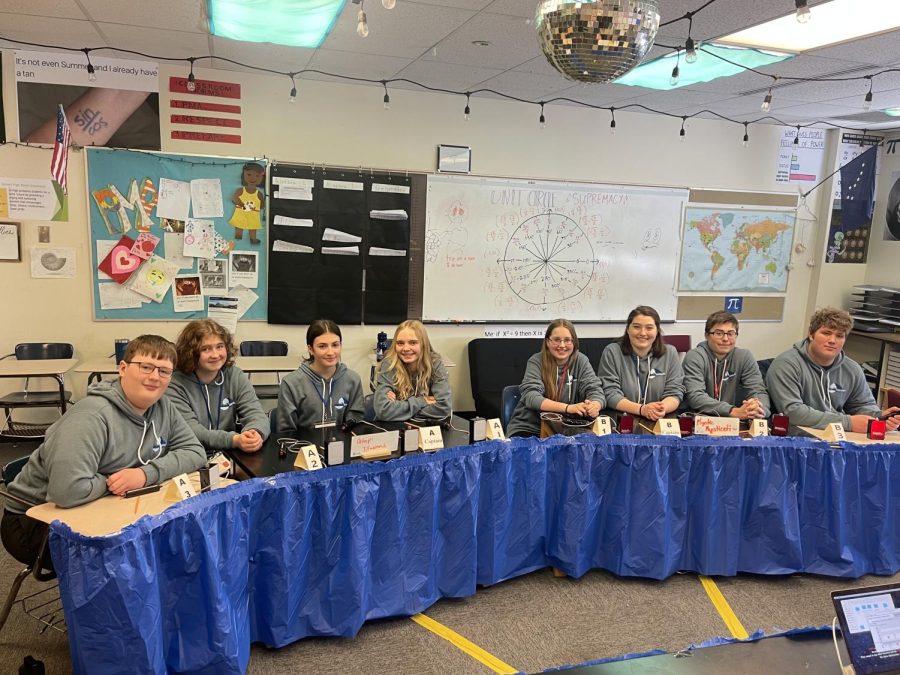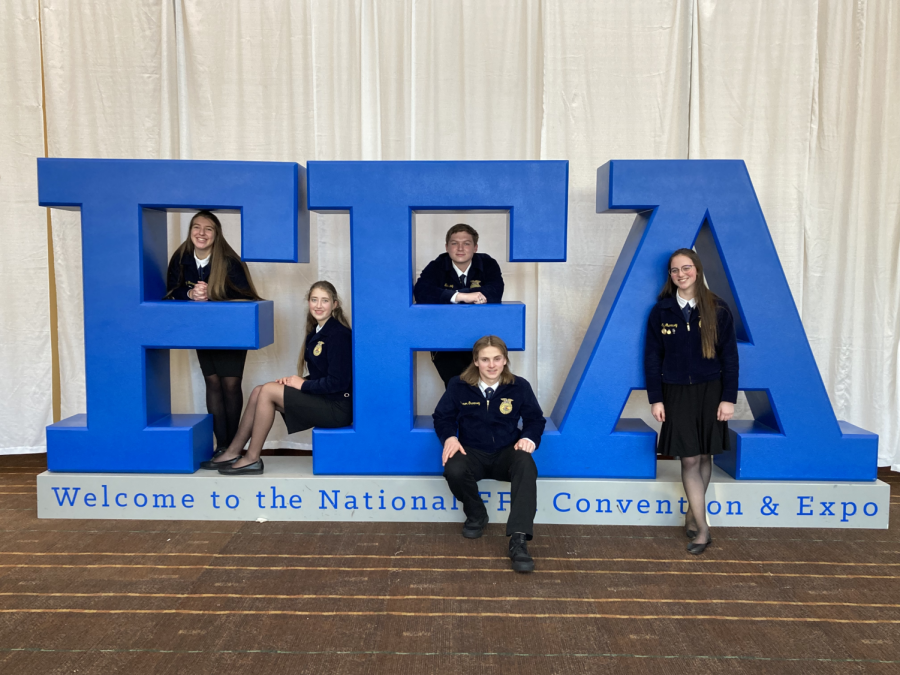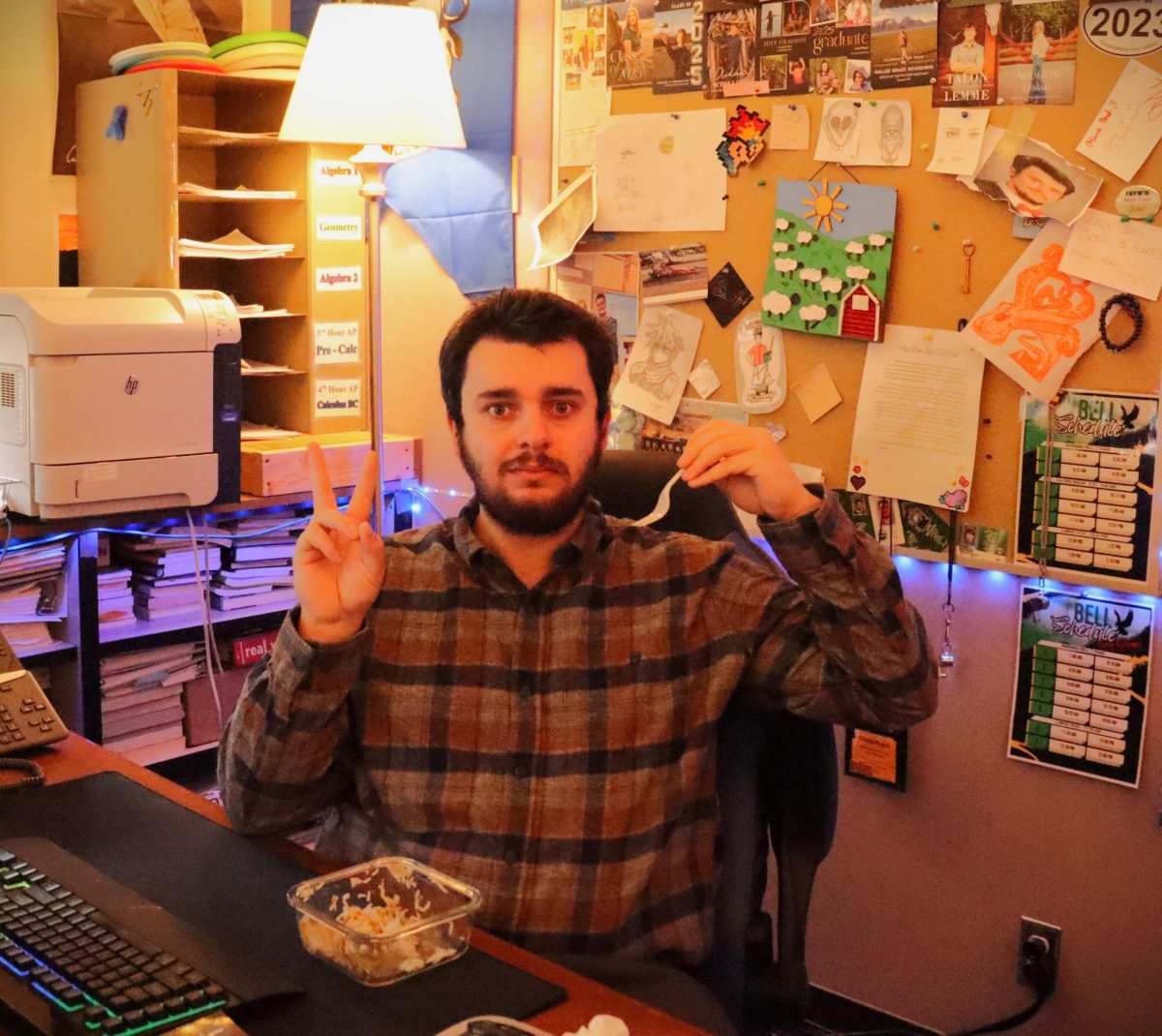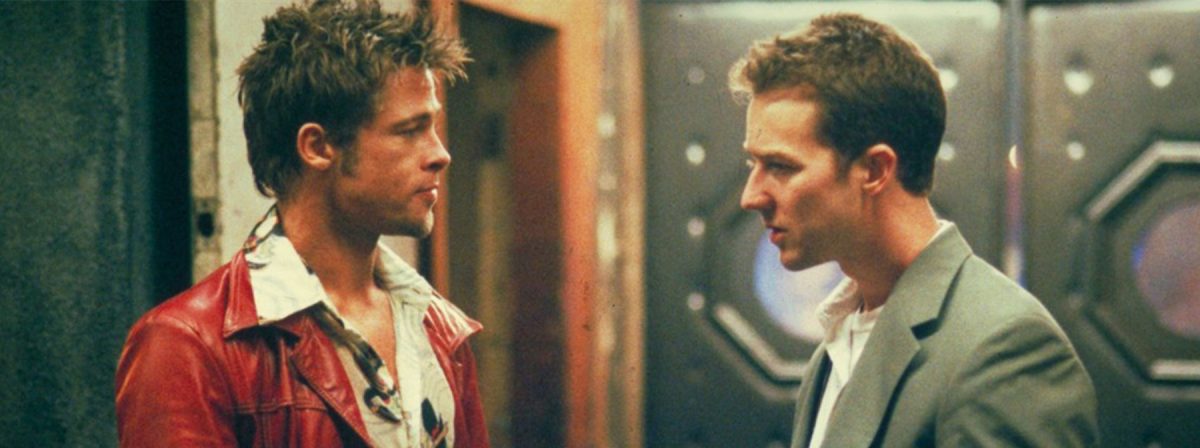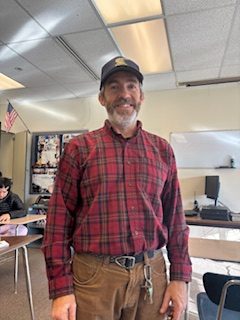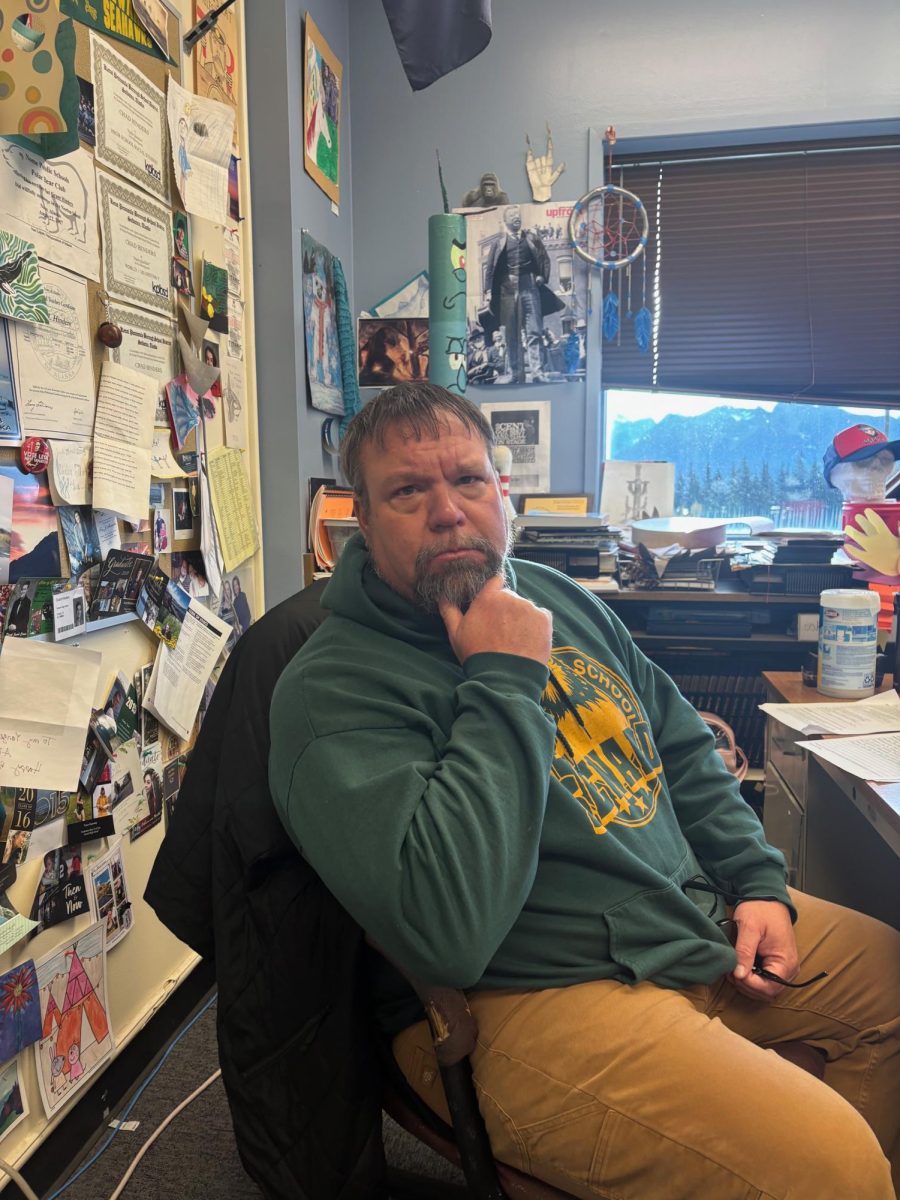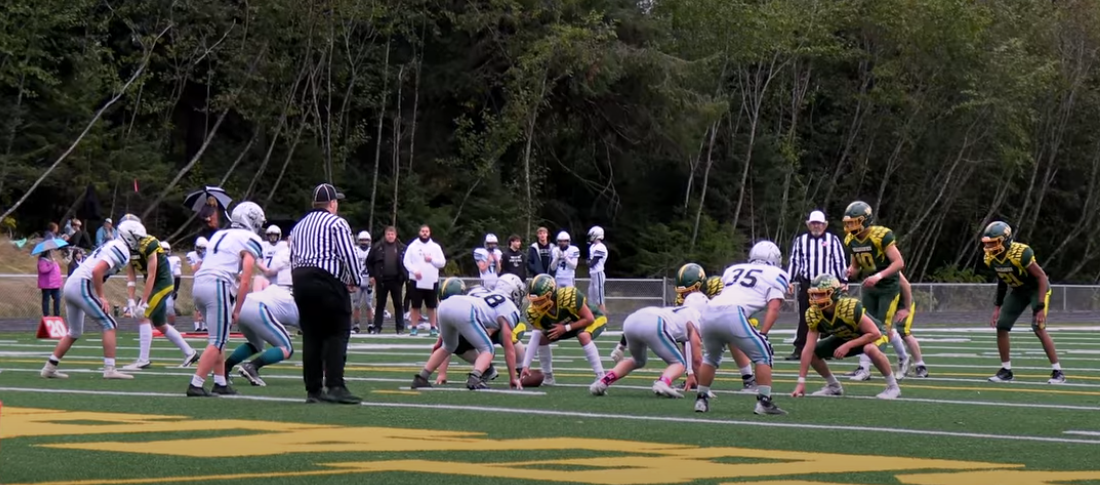Across the United States, the National Ocean Sciences Bowl (NOSB) hosts regional competitions including trivia on various ocean topics. The Tsunami Bowl, held in Seward, is where teams from all over the state compete. From Seward, two teams worked hard over the year to prepare for this event.
The Seward Guyot-Ducks, consisting of Maddie Haas, Emily Anger, Gracie Russell, Esme Wilder, and Otto Nipp, and the Sleeper Sharks, with Makena Desermia, Wally Wallace, Sadie Haas, and Olive James met from early September through February with their coaches, Mica Van Buskirk and Janice Haas to work on the competition’s research paper, presentation, and quiz bowl. Thankfully, all their hard work paid off.
After the research essay submissions, the Guyot Ducks received 2nd place and the Sleeper Sharks came in 4th. The next project was to present their research to science judges, which was held on February 28th, the first day of the Tsunami Bowl.
The Seward teams once again placed well, with the Sleeper Sharks coming in 2nd and the Guyot-Ducks 4th. After a day full of presentations, the teams went to the Sealife Center for a veterinarian lab and then to the Alutiiq Pride Hatchery for a tour of their facility.
The research paper, which was due in December, was prompted by the topic of “What are the ecological and economic consequences of non-native marine species in Alaska, and how do these impacts compare to those observed globally?” Both teams wrote an original 15-page essay.
The teams then went on to compete in the main event: the quiz bowl. Their scores from the research paper and presentation accounted for their final score before the championship rounds. Both Seward teams performed well and ended in the winners’ bracket for the last day of the competition on March 2nd.
The final results placed the Guyot-Ducks 4th and the Sleeper Sharks 2nd, making for a successful season. This year, the team says goodbye to seniors Wally Wallace and Gracie Russell, who spent a lot of their time learning all about marine science.
Most team members are planning on returning next year to likely have another successful and eventful season. Currently, the teams are still meeting together to create a European Green Crab monitoring program for the community of Seward to help boost engagement on the topic of invasive and non-native species.
The National Ocean Sciences Bowl is an incredible opportunity and experience to learn more about marine science and is a great resource for preparing for more academic and vocational endeavors. If you are interested in joining for the next season, practices will be starting up once again in September.

